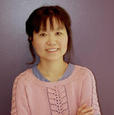Clinical depression is one of the most common mental disorders in the United States. Symptoms include: sad, anxious or empty mood, feelings of hopelessness, pessimism, guilt, worthlessness, helplessness, irritability, loss of interest/pleasure in activities, fatigue, difficulty concentrating, decreased memory, insomnia, restlessness, loss of appetite, and suicide. Even though we have so many kinds of medications including selective serotonin reuptake inhibitor ( SSRI), Monoamine Oxidase Inhibitor (MAOI)and Serotonin-Norepinephrine Reuptake Inhibitor (SNRI), we have more and more people feeling depressed or committing suicide, especially teenagers. In the small towns of Needham and Wellesley, Massachusetts, four teenagers committed suicide within one year. Before those tragedies happened, psychiatrists announced that those kids were getting better according to their symptoms. As an acupuncturist and herbalist, I have been searching for safer ways to help this younger generation cope with depression. Chinese Herbs and acupuncture can be a safer and effective treatment for mild depression or they can be combined with medication to reduce the side effect of the higher dosage of medications.
Dr. Dong et al. published a paper in J. Ethnopharmacol, 2013 explaining how a simple Chinese herbal formula can be used to treat depression and anxiety. This formula has only four herbs: Ren Shen/Ginseng Radix, Yuan Zhi/Polygalae Radix, Shi Chang Pu/Acori Tatarinowii, and Fu Ling/Poria. In this study, Dr. Dong used animal models of depression such as tail suspension, chronic fatigue, and forced swimming, he demonstrated that this simple formula promoted the production of serotonin(5HT) and prevented the reuptake of serotonin. The research indicated that serotonin, which can make people relaxed and sleep deeper, significantly increased in different brain areas such as hippocampus, prefrontal cortex and hippocampus extracellular fluids.
Another interesting study was published in Evidence-Based Complementary and Alternative Medicine in 2013 by Kevin Yue Zhu et. al, exploring the mechanism of this simple Chinese formula and compared the different dosages of each herbs on the effect of anti-depression. In this study, a standardized extract of each herbal decoction was applied to one kind of nervous system cell called astrocytes. The study showed that this formula can significantly stimulate the secretion of neurotropic factors, such as BDNF, NGF and GDNF, which are very critical for healthy nerve functions. When your stress level increase, those critical neurotropic factors can decrease. Ren Shen and Yuan Zhi can reverse stress-induced decreased BDNF level in hippocampus in mice and Ren Shen can also enhance NGF production in rat astrocytes. Shi Chang Pu increased BDNF mRNA expression in hippocampus of mice. The higher ratios of Ren Shen and Shi Chang Pu have a stronger effect on the neurotropic factors.
When we analyzed these two formulas, Ginseng and Fu Ling strengthened the spleen (digestive) and lung function. This can enhance the absorption of critical vitamins and minerals, so depressed people can produce more happy hormones such as serotonin, dopamine and endorphin. Fu Ling, Shi Chang Pu and Yuan Zhi can relax people, clear up the phlegm and make them stop thinking. This study verifies how important our digestive function is for treating depression. Furthermore, keeping the nervous system in a balanced state is very critical for us to enjoy every single moment of life. The herbs do not have sedative effect, they only relax our body and mind, so we do not think too much and get overwhelmed by unhealthy thought.
Li Zheng is a licensed acupuncturist and herbalist and a graduate of the Beijing University of Chinese Medicine with 11 years of formal training, including 6 years of residency. She holds a Ph.D. in neuroscience from the US and is a Harvard Medical School-trained researcher and a professor at the New England School of Acupuncture. Her two practices are located in Needham, MA and Boca Raton, FL. She has 26 years of clinical experience. Here she is sharing the information about Acupuncture and Depression.

Post new comment
Please Register or Login to post new comment.